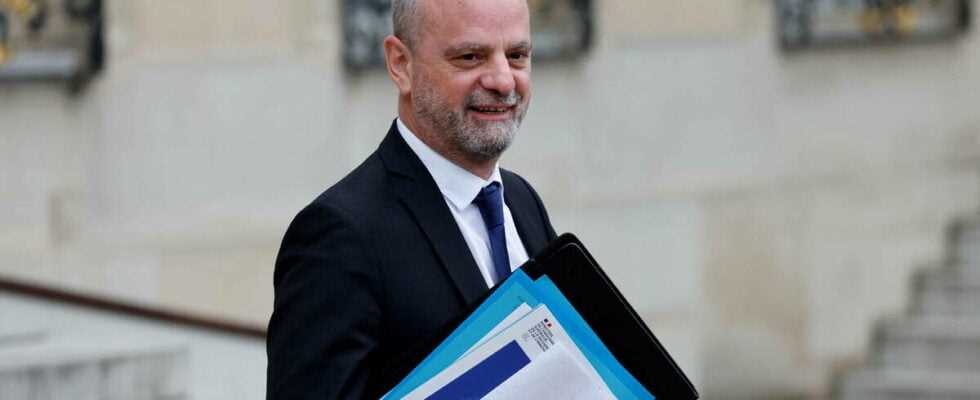Against the backdrop of the decline in the Covid-19 epidemic, the minister is starting a week of negotiations with education stakeholders to discuss the easing of restrictions in schools.
This time, he takes it in advance. Jean-Michel Blanquer seems to have learned from his mistakes and is launching a series of consultations on Tuesday with a view to once again easing the health protocol in schools from the start of the February holidays. The government intends to adapt the restrictions in schools to the decline of the epidemic which began several days ago. The still very high levels of contamination, however, raise questions about the relaxation of measures that could be operated.
“We are currently at level 3 for primary school and level 2 for secondary, we are going to have several meetings this week which will define what it is, with the hope of moving to level 2 in primary” , anticipated the Minister of National Education on the set of CNews, Sunday evening.
Since December 9, elementary schools have been banned from mixing classes and offering indoor sports lessons. Children must also wear the mask outdoors.
Measures that should be taken. Blanquer mentioned on CNews “the end of wearing masks outdoors for children” as well as “the alleviation of the constraints on the practice of sport”. At the end of the Health Defense Council on Wednesday, the government spokesperson had also put on the table “the management of contact cases as well as the test policy”. Since the beginning of January, children have had three tests to perform in four days when they are in contact. This total could be reduced to two, argued Jean-Michel Blanquer.
If the executive therefore intends to reduce the arduousness of the measures which weigh on the youngest (and their parents) by taking into account the decline in the epidemic, the protections would be lowered by the same amount. Contaminations are down, but Covid-19 is still spreading widely in society, and especially in schools where not much has been done to limit the circulation of the virus. As of February 4, there were still 16,838 classes and 48 establishments closed, according to data from the Ministry of Education. The rolling seven-day incidence rate is still above 4,800 cases per 100,000 children aged 6 to 10 and 5,200 cases for 11-14 year olds.
New Caledonia ahead
New Caledonia, whose long southern summer holidays end on February 14, foreshadows what could happen in mainland France. “The watchword is a classic return to school for all students, without half-groups, or gauges and with simplified protocols”, declared this Monday during a press conference Isabelle Champmoreau, member of the collegiate government in charge of education. Wearing a mask will not be compulsory for kindergarten and primary school students indoors, but only for those in middle and high schools as well as for all staff.
“In terms of screening, we have made it as simple as possible for parents and especially for children. […] Parents are advised to only test children when they are symptomatic,” also indicated Isabelle Champmoreau. The archipelago is however under a state of emergency, with an incidence rate of 2,792 cases per 100,000 inhabitants, with no increase in hospital pressure. The peak of the current wave is expected for mid-February, the date of the start of the school year.
Nothing says that the Caledonian model will be copied identically. The High Authority for Health has been seized and should issue an opinion on the matter in the coming days. But the executive’s objective is to have, this time, a new protocol ready for the return of students from the winter holidays, from February 21 for zone B (Aix-Marseille, Lille, Nantes, Reims, Rennes, Rouen, Strasbourg). Changes should even be announced “very ahead of the start of the school year”, had confidently indicated Gabriel Attal, possibly “in the course of [cette] week”.
Whatever the outcome of the discussions with the unions and the health authorities, and the degree of easing of the restrictions, it is in any case a change of method for Jean-Michel Blanquer, with more anticipation . In January, the minister announced the protocol from Ibiza, where he spent his holidays, in a paid press article, the day before the start of the school year. A process criticized from all sides and even within the majority, which had poisoned the daily life of the government for several days. It remains to be seen what reactions the substance of the changes will elicit.
